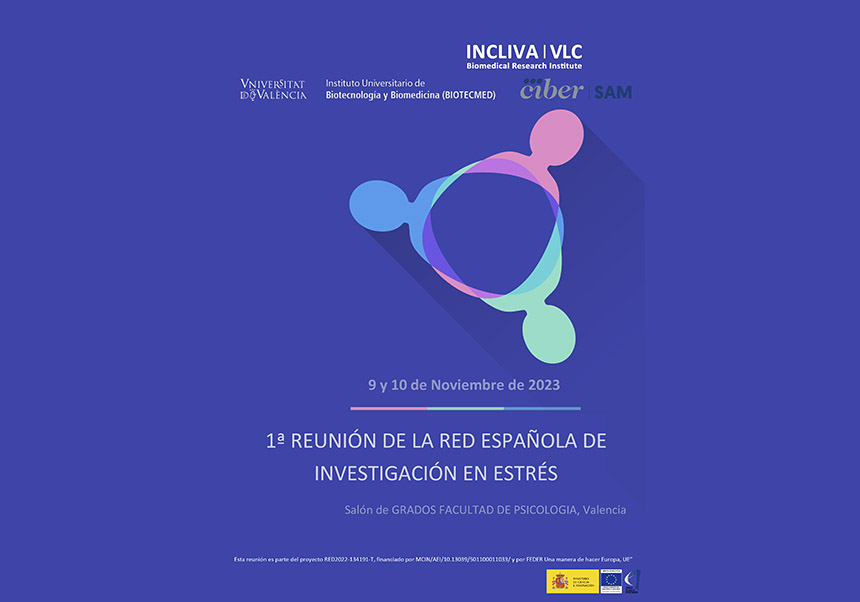
The meeting, organised by INCLIVA, CIBERSAM and the UV, aims to seek synergies in research and progress in the knowledge of the effects of stress on the body and, above all, on the brain.
The Spanish Stress Research Network will hold its first meeting tomorrow Friday 9 in Valencia, in which 23 researchers from all over Spain will debate to seek synergies in research and progress in understanding the effects of stress on our body and particularly on the brain.
The meeting, which will be held throughout the morning in the Graduation Room of the Faculty of Psychology (Blasco Ibáñez Avenue, 21), has been organised by the Neuroplasticity Unit of the Institute of Biotechnology and Biomedicine of the University of Valencia (UV), the G23 of CIBERSAM (Networked Biomedical Research Centre in Mental Health), of the Carlos III Health Institute, and the Research Group in Psychiatry and Neurodegenerative Diseases of the INCLIVA Health Research Institute, of the Clinical Hospital of Valencia.
The Spanish Stress Research Network, coordinated by Dr. Juan Nácher, researcher from the aforementioned group of INCLIVA, CIBERSAM and the UV, is a cooperative and multidisciplinary research structure funded by the Ministry of Science and Innovation, which is made up of 13 basic and clinical research groups, many of them belonging to CIBERSAM and two from the UV.
“The creation of this network fundamentally responds to an important challenge: the development of strategies to understand and combat the impact of stress in our society. This proposal is based on the need for a cooperative research structure, given the large number and disciplinary diversity of teams in our country. The purpose of the network is collaboration and obtaining synergies, which enhances the obtaining of joint financing at national and European level and the implementation of joint actions to deepen and disseminate research on stress,” explained Dr. Nácher.
Stress is the process that is launched when a situation or event is perceived as threatening or overwhelming the individual’s resources. It is known that traumatic events or prolonged stress are predisposing factors for different diseases and stress can play an important role in the origin of Alzheimer’s disease and other neurodegenerative pathologies.
“The current way of life is a constant source of stressors that have a negative impact on different aspects of health, such as metabolic and cardiovascular risks or those related to mental disorders or cognitive impairment. In fact, stress is the main non-genetic factor that increases vulnerability to psychopathology”, warned researcher Juan Nácher. “This is why it is necessary to develop strategies based on scientific evidence to understand and combat its negative effects”, he added.
Dr. Nácher has stated that “stress not only affects adults, but also pregnant mothers, children and teenagers, especially in situations of poverty and adverse experiences such as abuse or harassment. Therefore, research on the impact of adverse early experiences on the brain and behaviour, as well as their treatment, is of vital importance".
Programme of the meeting of the Spanish Stress Research Network by clicking here.

.jpg)








